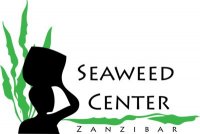The Solution and Previous Project Activities Performed by CSE 2010
The Seaweed project carried out by the class of CSE 2010 is influenced by the seaweed co‐operative in Kidoti (a village located in the northern part of Zanzibar). Through a series of infrastructural, technological and organizational improvements, this co‐operative is now able to produce higher quality seaweed as well as soap from the seaweed, in a socially, environmentally and economic improved way that benefits the whole village. The Seaweed Center project run by the class of CSE 2010 has had the following three main objectives:
1. Working Premise: Manufacturing Facility with Solar Drying Storage Space
In order reduce the significant poverty and the women’s minor influence in the villages in Zanzibar, one of the objectives is to increase the women’s income and strengthen their social position by creating new job opportunities for the women. Through an acquisition of land and construction of a manufacturing building, the women could wake up in the morning and actually go to work. In order to solve the issue regarding the lack of storage space during the rainy seasons, a solar drying storage space has been built in connection to the manufacturing building, which will result in a constant stream of revenue to the women farmers, regardless type of weather. This facility is located near the seaweed cultivations in order to improve the current infrastructural situation where the women must carry the seaweed for long distances.
By selling seaweed and soap in connection to the facility, the class of CSE 2010 also makes it possible for the women to cut the middle hands. The facility will be built near the main road that connects the west and east coast of Zanzibar (which is also in near connection to the ocean). This makes it possible to develop the facility into a significant tourist attraction where the women can sell their products from the facility to the tourists directly.
2. Knowledge Diffusion: Seminars and Workshops On-Site
In order to have a long‐term sustainability for the project and for Zanzibar’s future it is a necessity for the women to learn the basic methods of how to efficient run businesses from a social‐responsible perspective. The learning will appear from well‐developed seminars, lectures and workshops with role plays which simulate and reflect real‐life business applications. Significant demand of increased knowledge within different areas, especially business and entrepreneurship has been expressed not only from the Tanzanian government but also from the local population in Zanzibar. The overall goal with the Seminars and Workshops is to create a consensual, providing and significant learning‐process and knowledge‐diffusion between all the involved parties in the project, but especially between the CSE students and the women seaweed farmers.
3. Alternative Economic Activities: Soap Making Machinery
The third focus of the project has been to create alternative income bringing activities in order to strengthen the economic situation and the individuals’ extreme poverty. In order to compensate the obstacles for cultivate and harvest the higher quality seaweed, the class of CSE 2010 has chosen to increase the women’s product portfolio by installing soap making machinery. The experienced researcher from the Institute of Marine Sciences at the University of Dar es Salaam, Dr. Flower E. Msuya has introduced the class of CSE 2010 to a technique of how to extract and manufacture soap from the harvested seaweed available in Paje. The overall goal is to teach the seaweed farmers how to extract additional value from the seaweed and gain more income on day‐to‐day basis, as well as introduce them to new manufacturing methods that have been proven to be efficient by the Kidoti women.
Subscribe to:
Post Comments (Atom)

No comments:
Post a Comment